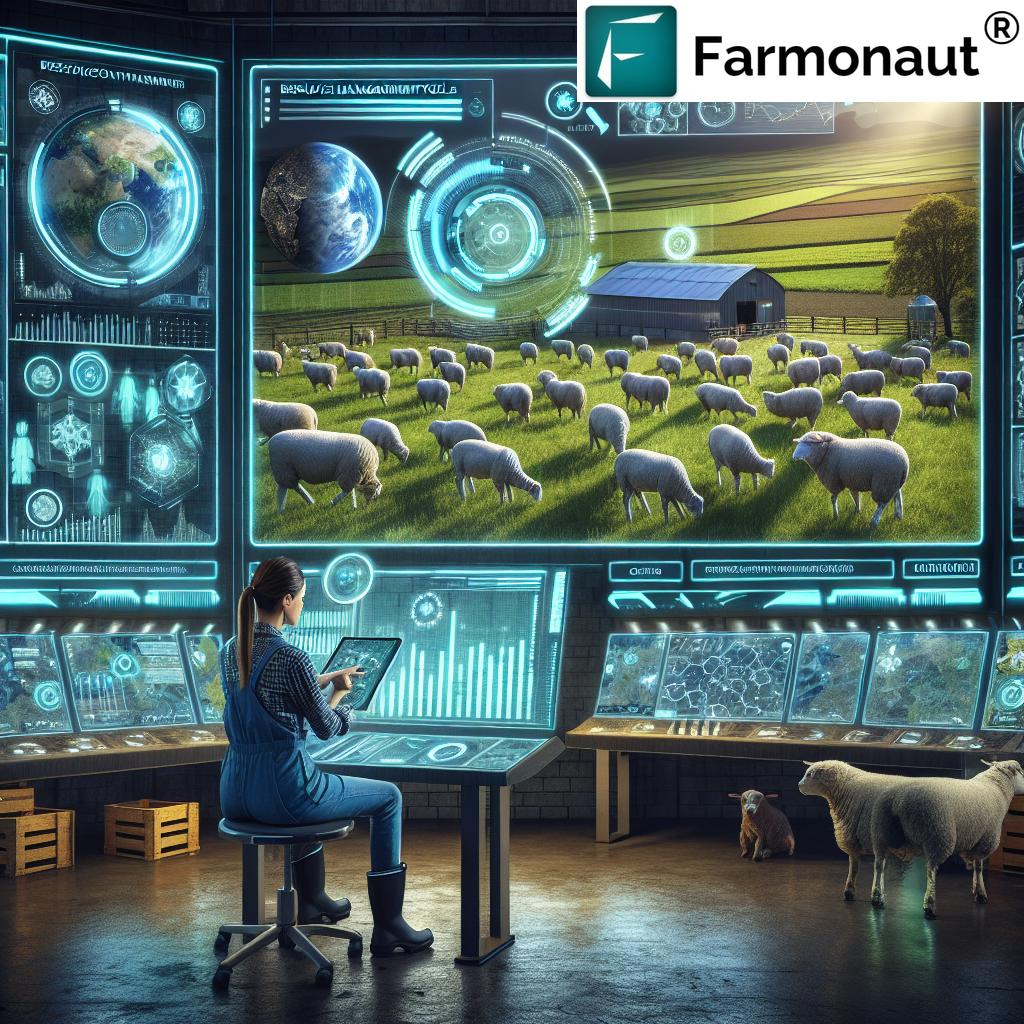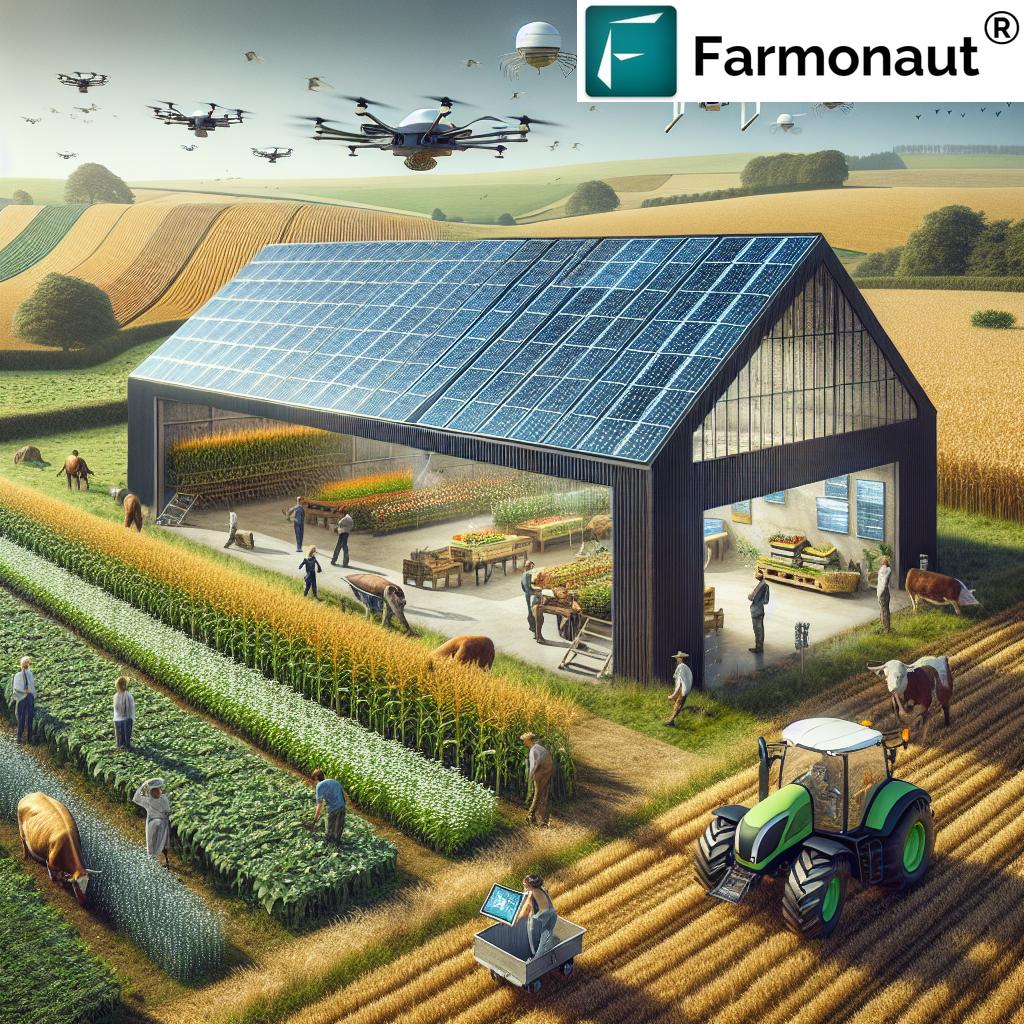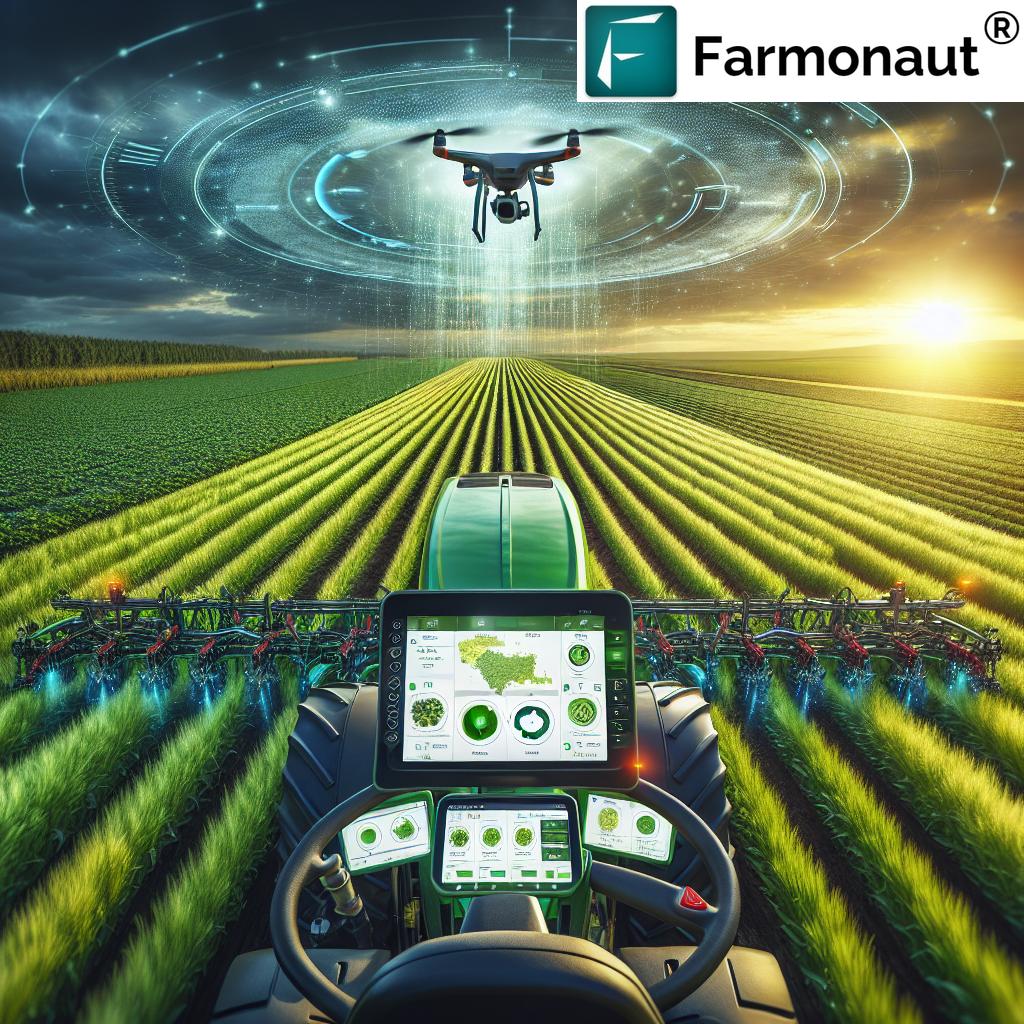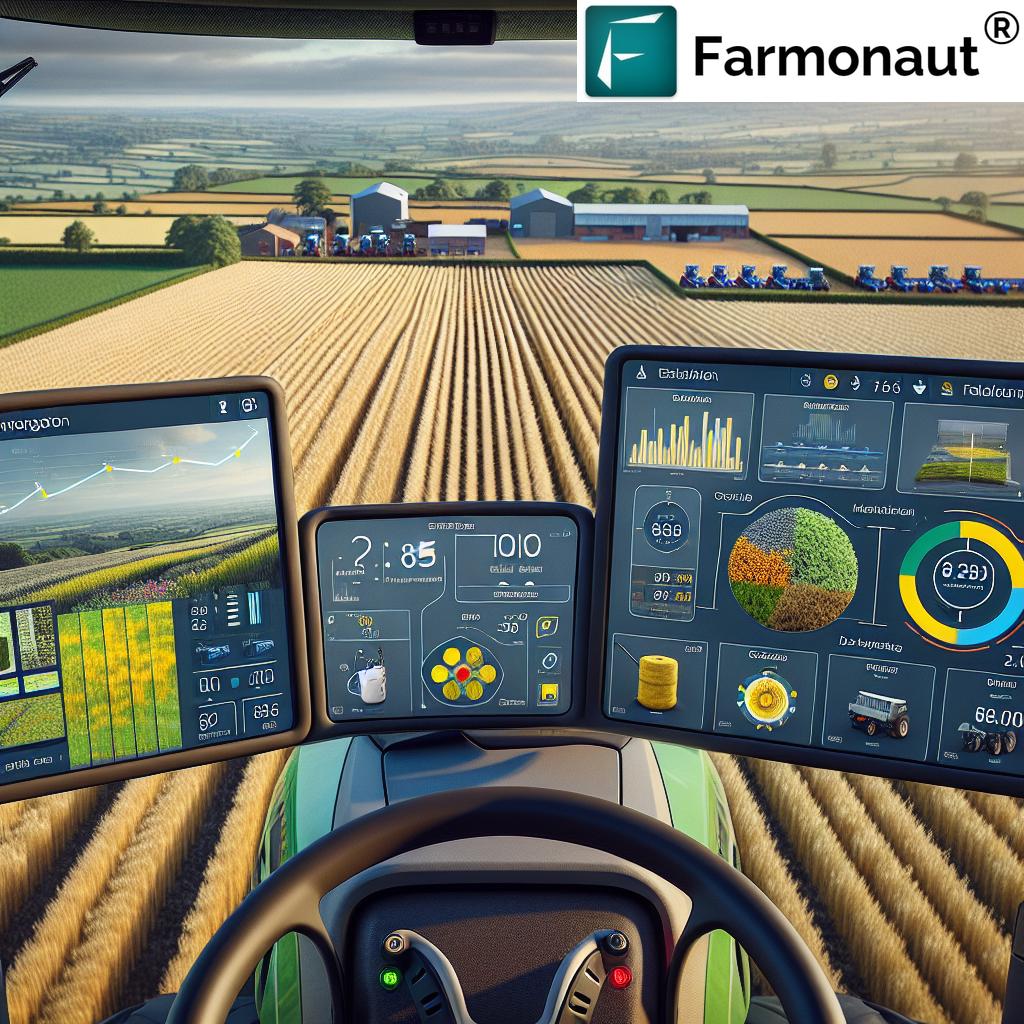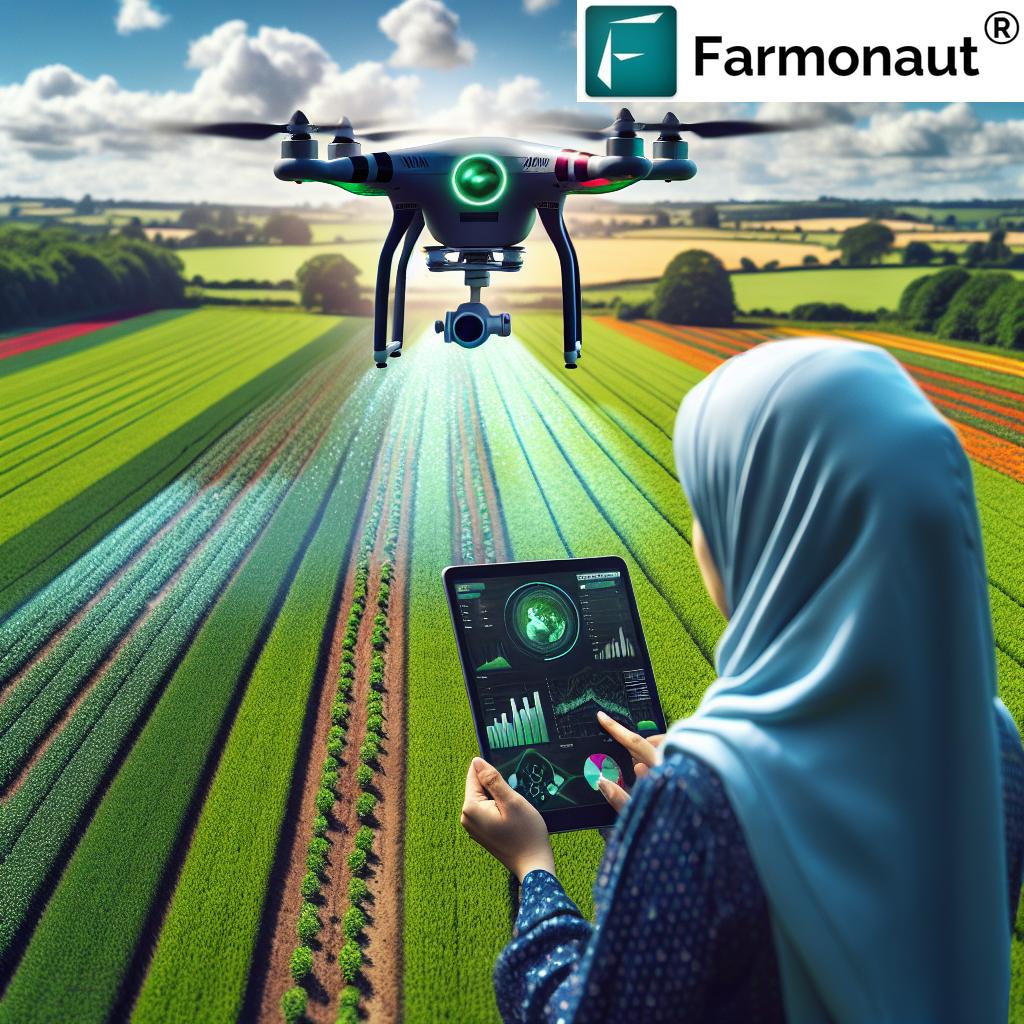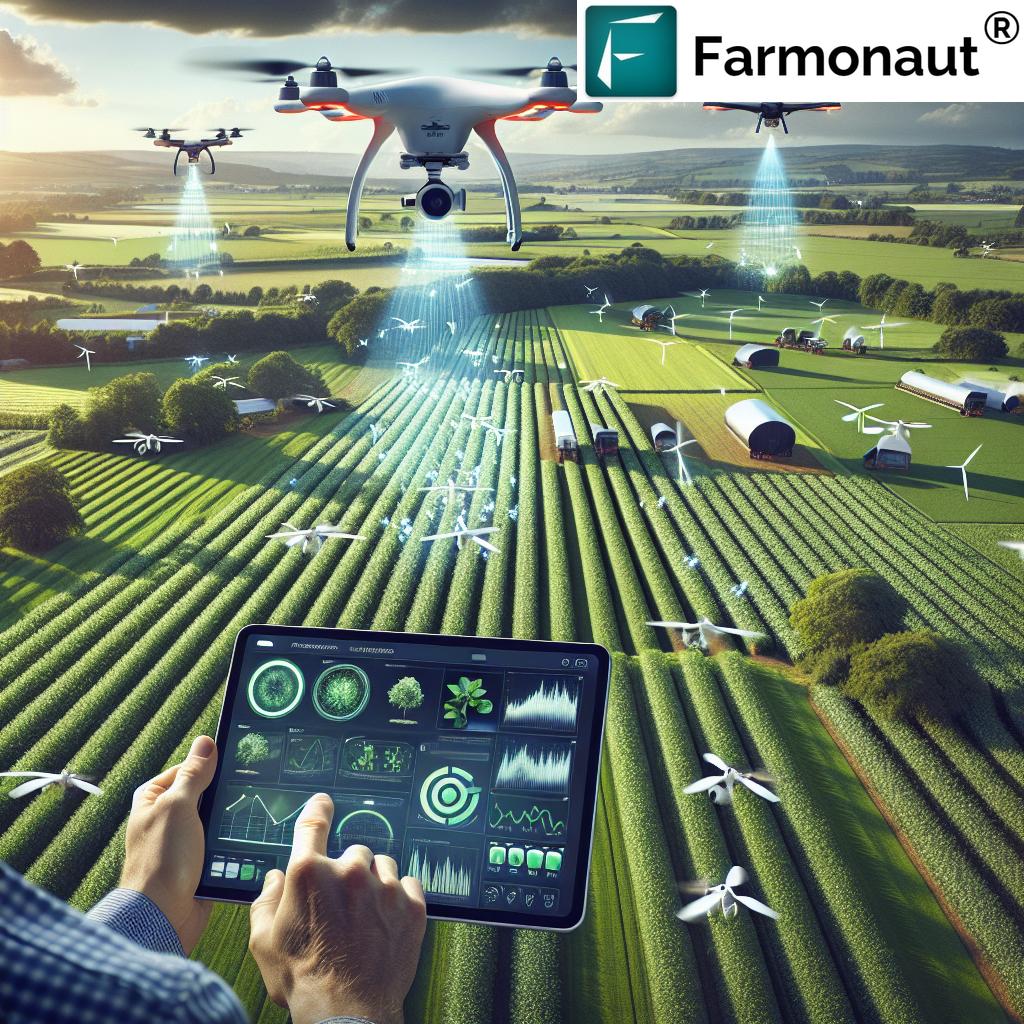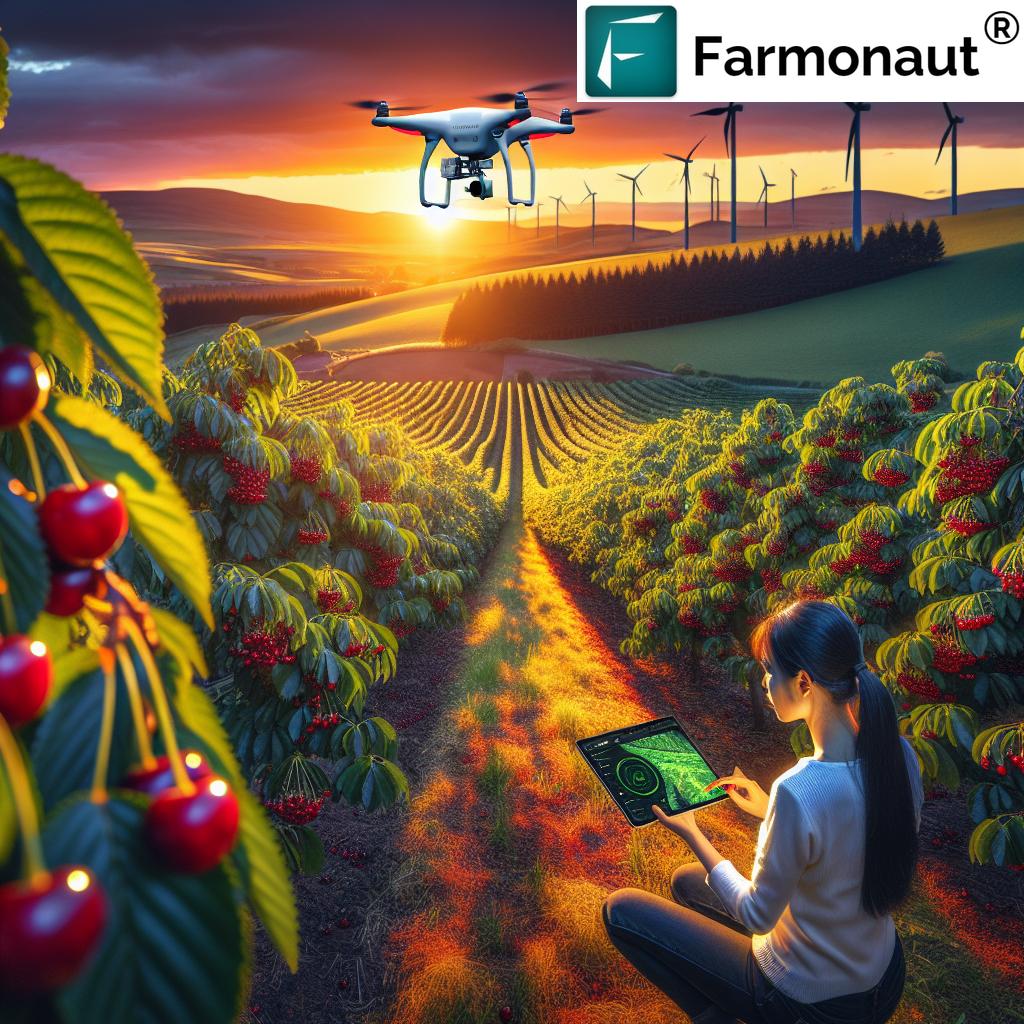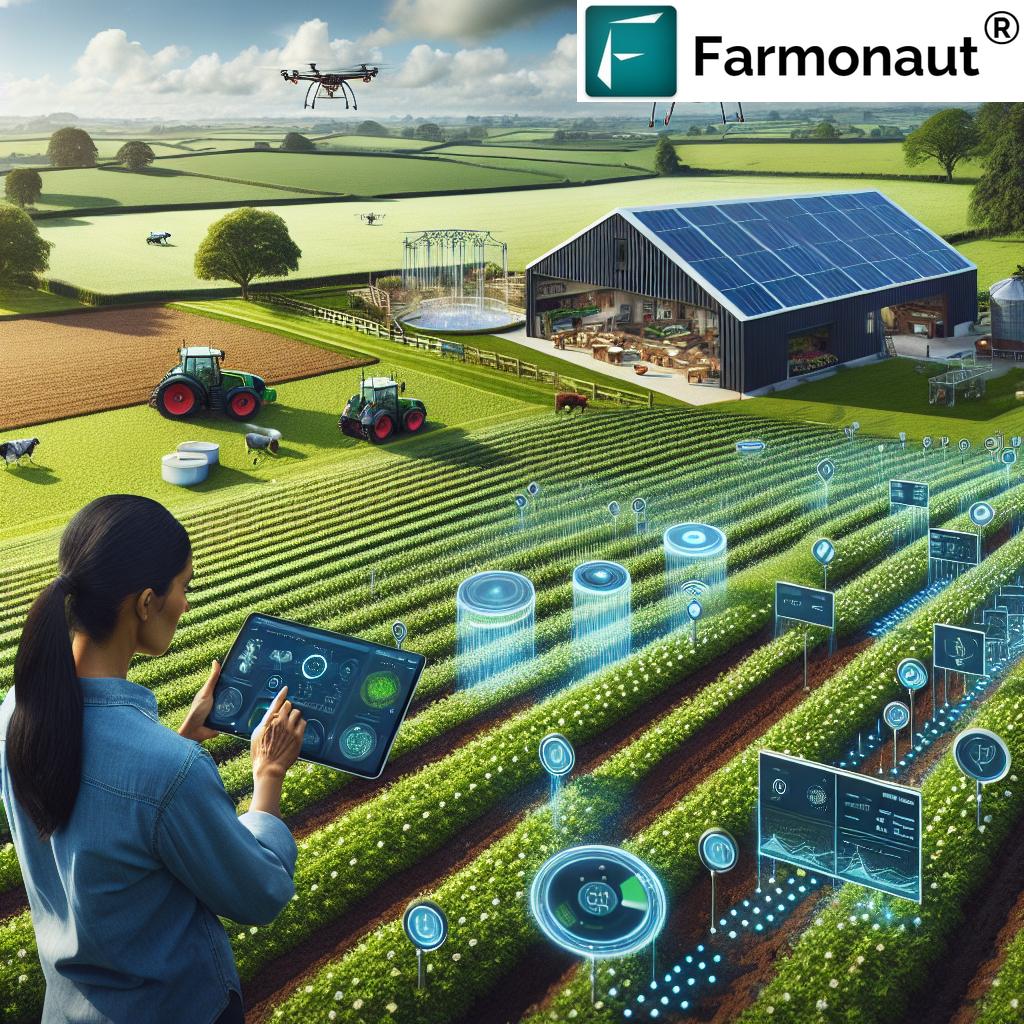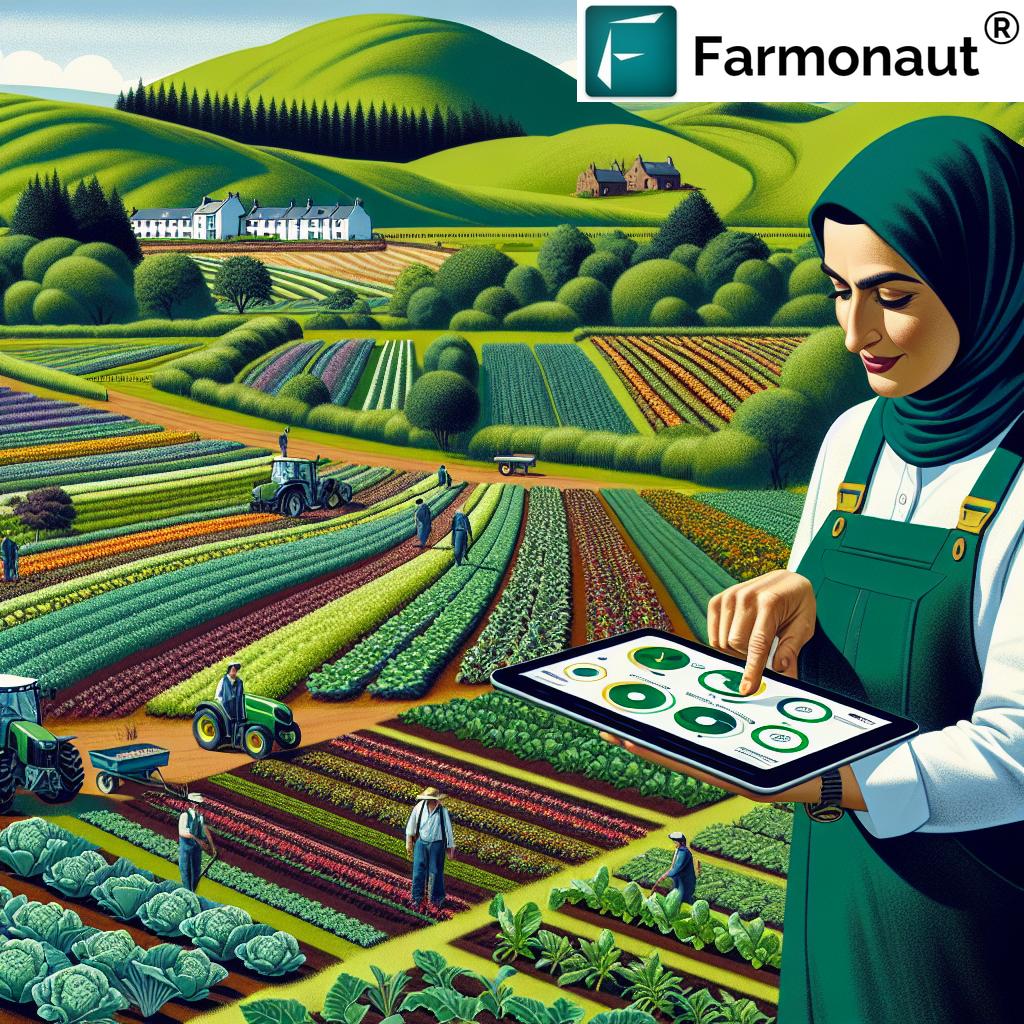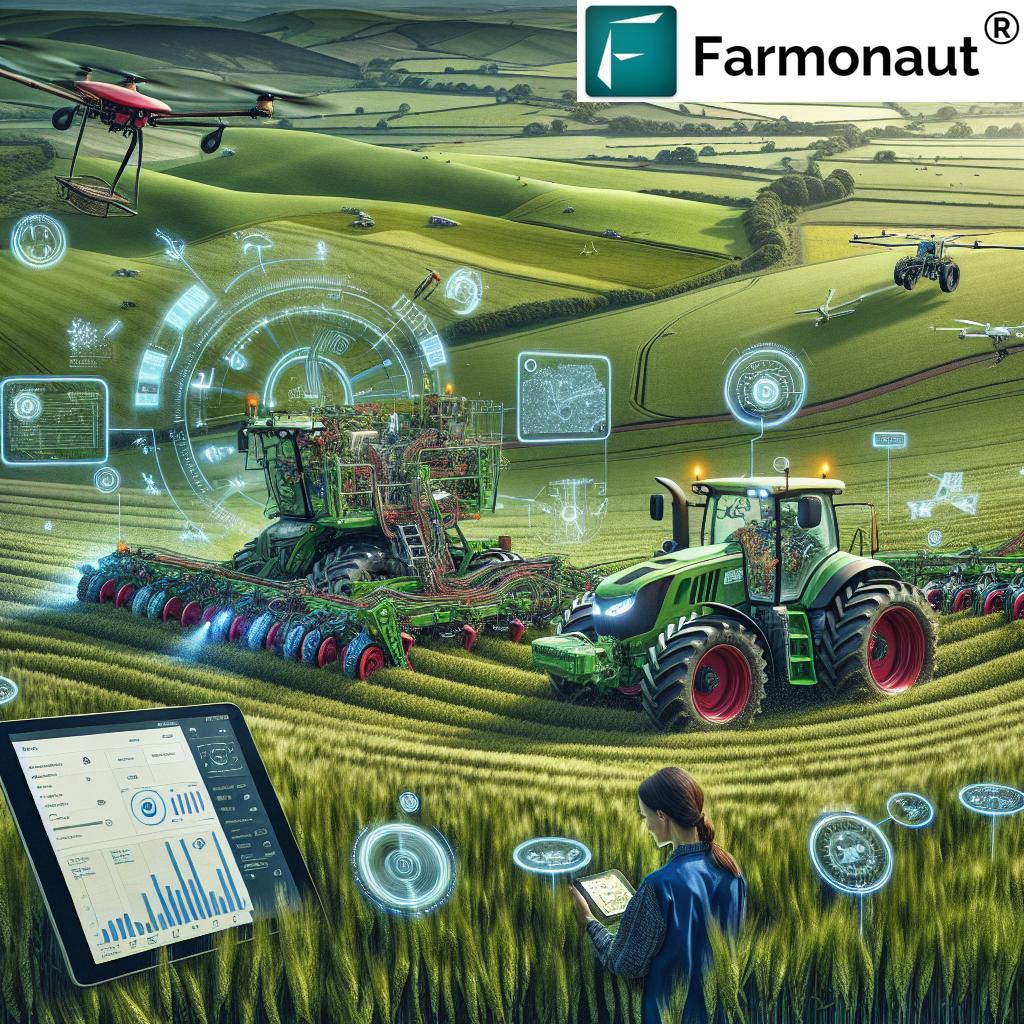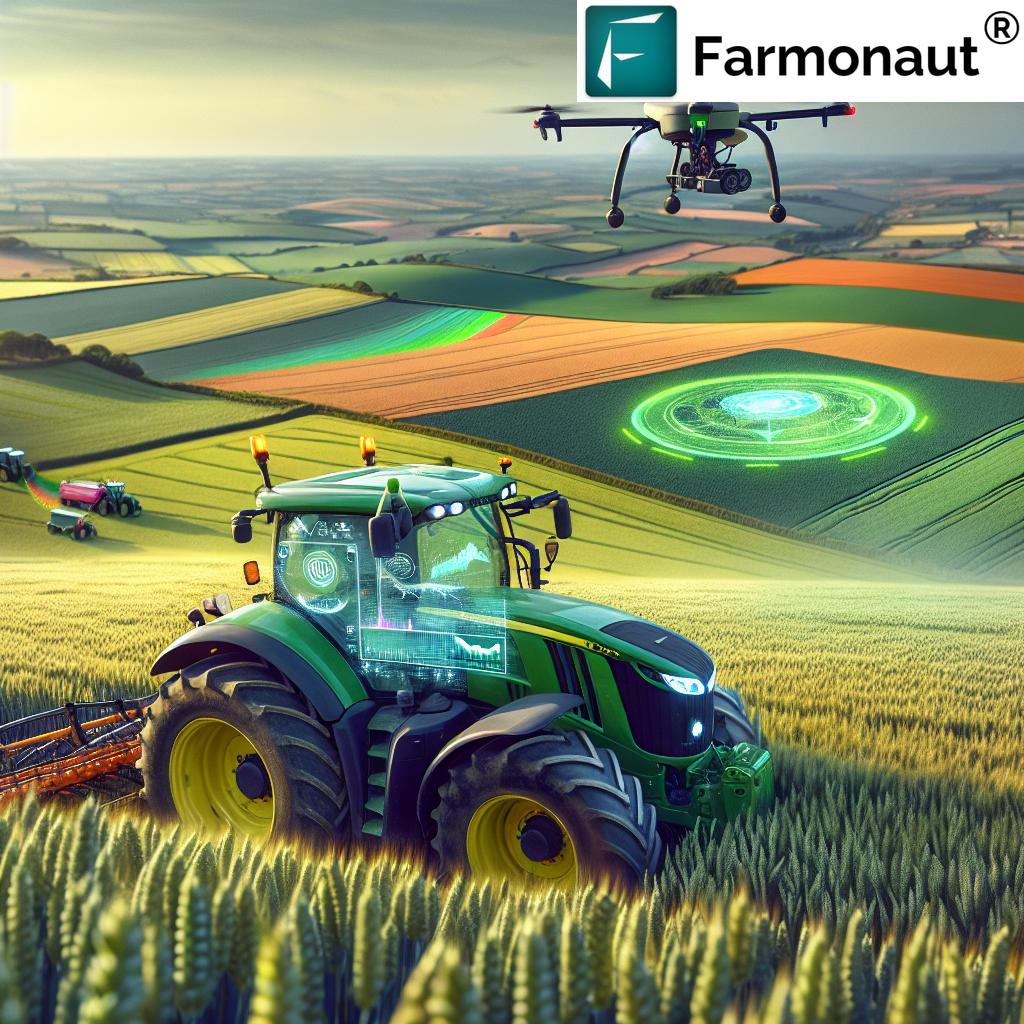UK’s Economic Crisis: How Sustainable Farming and Agroecology Can Save 12% of GDP
“Nature degradation threatens to slash UK’s GDP by 12%, surpassing economic impacts of recent crises.”
In the face of an impending economic crisis, the United Kingdom stands at a crucial crossroads. Our nation’s rich agricultural heritage is under threat, not just from external factors, but from within – the very practices that have sustained us for generations are now jeopardizing our future. As we delve into this pressing issue, we’ll explore how sustainable farming practices and agroecology could be the key to saving a significant portion of our GDP and securing a resilient future for UK agriculture.
The Looming Threat: Nature Degradation and Economic Impact
The UK is facing an unprecedented challenge. Nature degradation, a silent but potent threat, is poised to slash our nation’s GDP by a staggering 12%. This figure surpasses the economic impacts of recent crises, including the COVID-19 pandemic and the 2008 financial crash. The gravity of this situation cannot be overstated – it’s a clarion call for immediate and decisive action.
But what exactly is driving this alarming trend? At the heart of the issue lies the intricate relationship between our agricultural practices, the environment, and our economy. Traditional, industrial farming methods have taken a toll on our natural ecosystems, leading to soil depletion, water pollution, and a significant decline in biodiversity.
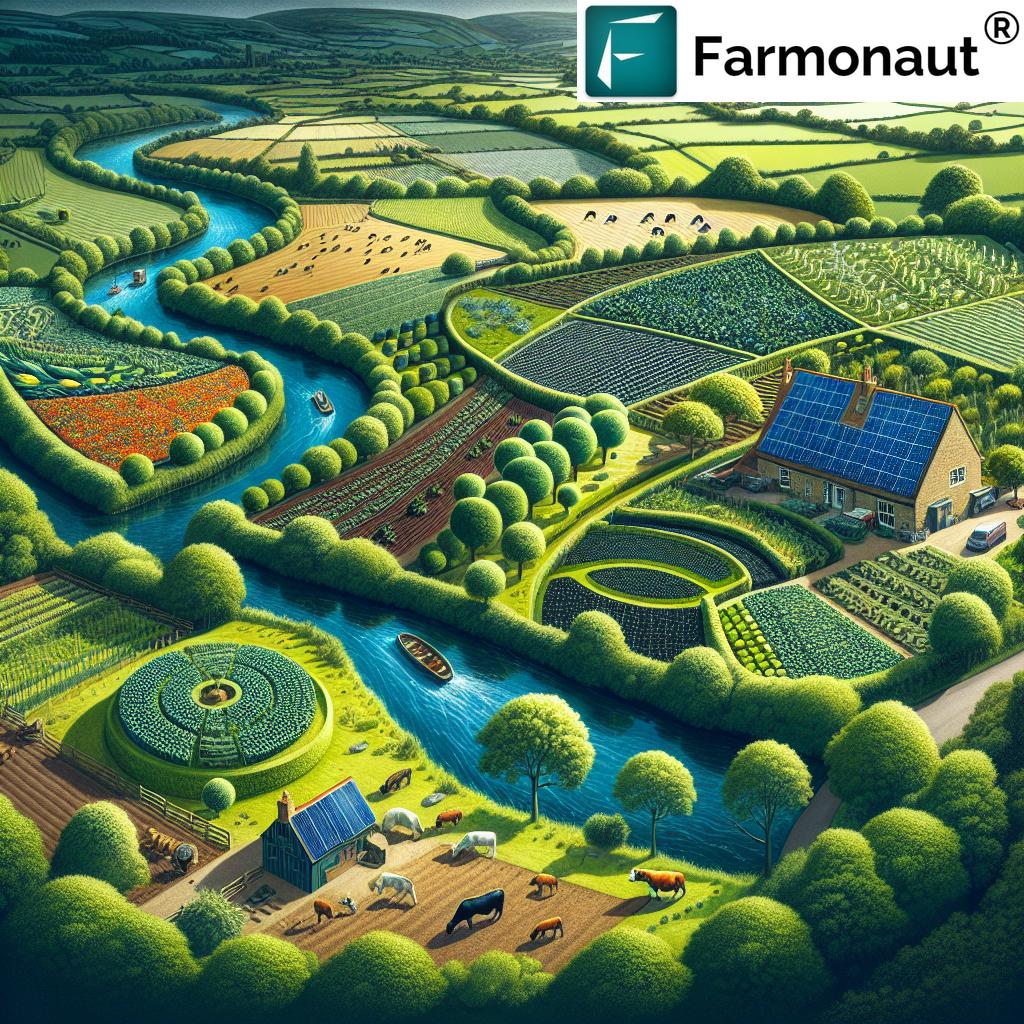
The Biodiversity Crisis: A Threat to Food Security
“75% of the UK is experiencing significant biodiversity loss, jeopardizing food security and agricultural sustainability.”
The statistics are alarming: 75% of the UK is experiencing significant biodiversity loss. This isn’t just an environmental concern; it’s a direct threat to our food security and agricultural sustainability. The decline in pollinators, beneficial insects, and soil microorganisms is undermining the very foundations of our food production systems.
To address these challenges, we need to embrace a paradigm shift in our approach to farming. This is where sustainable farming practices and agroecology come into play. These methodologies offer a holistic approach to agriculture, one that works in harmony with nature rather than against it.
Sustainable Farming Practices: A Path to Economic Resilience
Sustainable farming practices encompass a wide range of techniques that prioritize long-term ecological balance over short-term yields. These include:
- Crop rotation: Enhancing soil health and reducing pest pressures
- Cover cropping: Improving soil structure and preventing erosion
- Reduced tillage: Preserving soil biodiversity and carbon sequestration
- Integrated pest management: Minimizing chemical interventions
- Water conservation: Implementing efficient irrigation systems
By adopting these practices, farmers can not only reduce their environmental impact but also improve their long-term profitability. Healthier soils lead to more resilient crops, reduced input costs, and potentially higher yields over time.
Agroecology: Nature’s Blueprint for Sustainable Agriculture
Agroecology takes sustainable farming a step further by applying ecological principles to agricultural systems. It’s not just about minimizing harm; it’s about actively regenerating ecosystems through farming. Key aspects of agroecology include:
- Biodiversity enhancement: Creating habitats for beneficial organisms
- Agroforestry: Integrating trees and shrubs into farming systems
- Polycultures: Growing multiple crops in the same space
- Nutrient cycling: Maximizing on-farm nutrient production and recycling
- Social and economic considerations: Ensuring fair livelihoods for farmers
Agroecological approaches have shown promising results globally, demonstrating that it’s possible to produce sufficient food while enhancing biodiversity and ecosystem services.
The Economic Case for Sustainable Agriculture
While the environmental benefits of sustainable farming and agroecology are clear, the economic case is equally compelling. By transitioning to these practices, we can:
- Reduce input costs: Less reliance on expensive fertilizers and pesticides
- Improve soil health: Leading to better crop resilience and yields over time
- Enhance ecosystem services: Such as natural pest control and pollination
- Diversify income streams: Through polycultures and value-added products
- Access premium markets: Meeting growing consumer demand for sustainable products
Moreover, by safeguarding our natural capital, we’re protecting the very resources that underpin our agricultural productivity and, by extension, our food security and economic stability.
The Role of Technology in Sustainable Agriculture
As we transition towards more sustainable farming practices, technology plays a crucial role in making this shift both efficient and effective. Advanced agritech solutions, such as those offered by Farmonaut, are instrumental in this transformation.
Farmonaut’s satellite-based farm management solutions provide farmers with real-time insights into crop health, soil moisture levels, and other critical metrics. This data-driven approach enables farmers to make informed decisions about irrigation, fertilizer usage, and pest management, optimizing resource use while minimizing environmental impact.


Government Policy and Investor Support: Catalysts for Change
The transition to sustainable agriculture requires support at all levels. Government policies play a crucial role in incentivizing and facilitating this shift. Some key policy areas include:
- Subsidy reform: Redirecting subsidies towards sustainable practices
- Research and development funding: Supporting innovation in agroecological methods
- Land use policies: Encouraging biodiversity and sustainable land management
- Education and training: Equipping farmers with the knowledge and skills for sustainable farming
Investors also have a significant role to play. By directing capital towards sustainable agriculture initiatives, they can accelerate the adoption of these practices while potentially reaping long-term returns from a more resilient agricultural sector.
Comparative Analysis: Conventional vs. Sustainable Farming
| Aspect | Conventional Farming | Sustainable Farming | Potential Economic Impact |
|---|---|---|---|
| Soil Health | Degradation due to intensive practices | Improvement through organic matter addition | +2% GDP (long-term yield increase) |
| Biodiversity | Significant loss | Enhanced through habitat creation | +1.5% GDP (ecosystem services) |
| Water Usage | High consumption, often inefficient | Reduced and more efficient use | +0.5% GDP (resource savings) |
| Carbon Emissions | High due to intensive practices | Reduced, potential for carbon sequestration | +1% GDP (climate change mitigation) |
| Crop Resilience | Vulnerable to pests and climate change | Increased through diversification | +2% GDP (reduced crop losses) |
| Long-term Profitability | Declining due to soil degradation | Increasing as ecosystem health improves | +3% GDP (sustainable growth) |
| Government Subsidies | Often supporting unsustainable practices | Redirected to support sustainable methods | +1% GDP (efficient use of public funds) |
| Food Security | At risk due to environmental degradation | Enhanced through resilient food systems | +1% GDP (reduced import dependence) |
This comparative analysis clearly illustrates the potential economic benefits of transitioning to sustainable farming practices. The cumulative impact on GDP could be substantial, potentially offsetting the 12% GDP loss threatened by nature degradation.
Case Study: Scotland’s Pioneering Approach
Scotland has been at the forefront of sustainable agriculture initiatives in the UK. The Scottish government’s “Good Food Nation” policy aims to transform Scotland’s food system, emphasizing sustainable production methods, local food networks, and fair distribution.
Key initiatives include:
- Organic Ambition 2025: A plan to double organic land area
- Agri-Environment Climate Scheme: Supporting farmers in environmental stewardship
- Knowledge Transfer and Innovation Fund: Promoting sustainable farming practices
These efforts are already showing promising results, with increases in organic production and improvements in biodiversity indicators. Scotland’s approach serves as a model for how policy can drive the transition to sustainable agriculture.
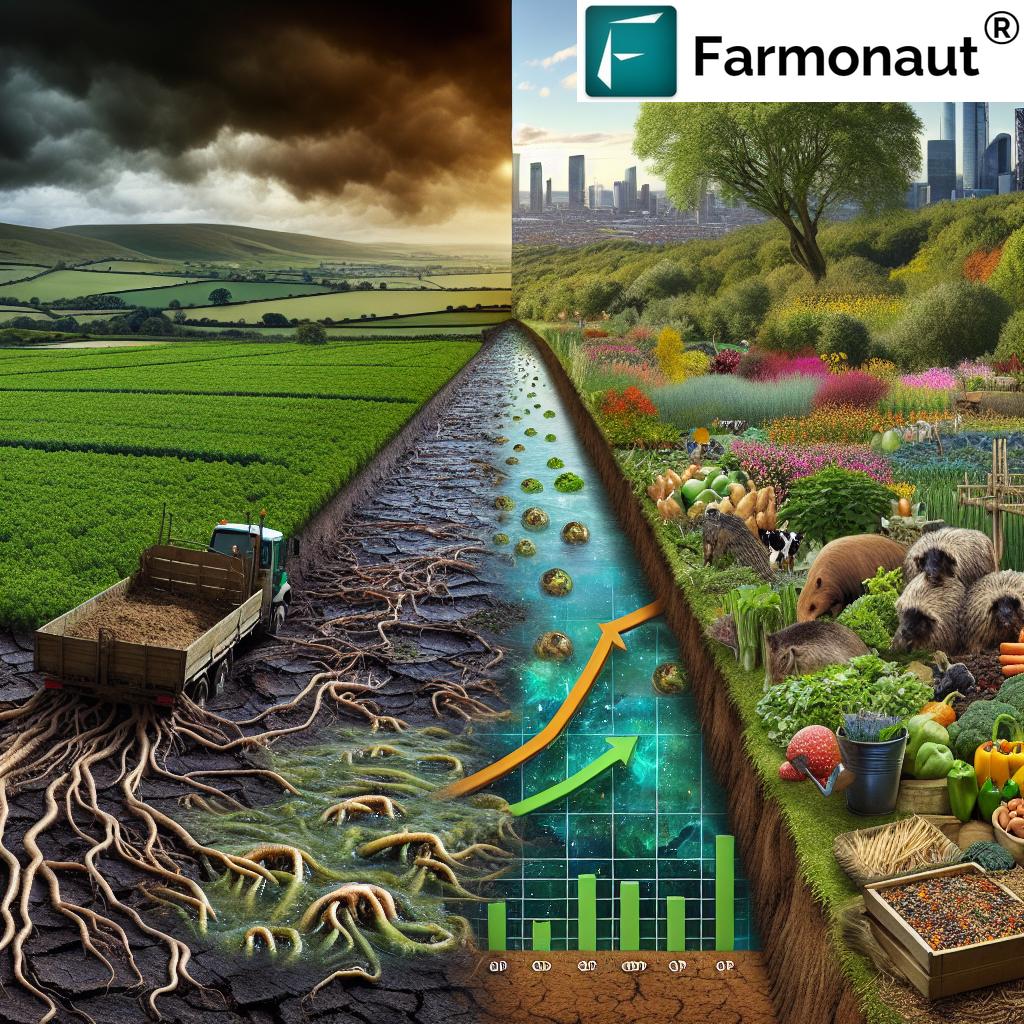
The Future of UK Agriculture: A Vision for Sustainability
As we look to the future, we envision a UK agricultural sector that is not only productive but also regenerative. This future is characterized by:
- Diverse landscapes: A mosaic of crops, hedgerows, and natural habitats
- Resilient food systems: Able to withstand climate shocks and market fluctuations
- Thriving rural communities: Supported by sustainable and profitable farming
- Innovation hubs: Leading the world in agroecological research and technology
- Carbon-negative agriculture: Actively sequestering more carbon than it emits
Achieving this vision will require a concerted effort from all stakeholders – farmers, policymakers, consumers, and technology providers. Companies like Farmonaut are playing a crucial role in this transition, providing the tools and insights needed to make sustainable farming a reality.
The Role of Consumers and Markets
While much of our discussion has focused on production methods, consumers and markets play a crucial role in driving the transition to sustainable agriculture. As awareness of environmental issues grows, there’s an increasing demand for sustainably produced food. This trend presents both challenges and opportunities for UK farmers:
- Market opportunities: Growing demand for organic and sustainably produced food
- Price premiums: Consumers often willing to pay more for sustainable products
- Supply chain transparency: Increasing importance of traceability in food production
- Local food movements: Growing interest in locally sourced, seasonal produce
By aligning production methods with consumer preferences, farmers can tap into these emerging markets while contributing to environmental sustainability.
Technological Innovation: The Farmonaut Advantage
In the journey towards sustainable agriculture, technological innovation plays a pivotal role. Farmonaut’s suite of agritech solutions exemplifies how technology can support and accelerate this transition:
- Satellite-based crop monitoring: Enabling precise resource management
- AI-driven advisory systems: Providing personalized farming recommendations
- Blockchain-based traceability: Ensuring transparency in food supply chains
- Carbon footprint tracking: Helping farmers measure and reduce their environmental impact
These tools empower farmers to make data-driven decisions, optimize resource use, and align their practices with sustainability goals. For more information on how Farmonaut can support your farming operations, visit our API Developer Docs or explore our API for integration options.
Conclusion: A Call to Action
The UK stands at a critical juncture. The threat of a 12% GDP loss due to nature degradation is real, but so is the opportunity to transform our agricultural sector into a model of sustainability and resilience. By embracing sustainable farming practices and agroecological principles, we can not only avert this economic crisis but also create a thriving, regenerative agricultural system that supports both our economy and our environment.
The transition won’t be easy, but with the right policies, technologies, and commitment from all stakeholders, it’s entirely achievable. As we move forward, let’s remember that every hectare converted to sustainable practices, every farmer adopting agroecological methods, and every consumer choosing sustainably produced food is contributing to a more resilient and prosperous future for the UK.
The time for action is now. Let’s work together to create an agricultural revolution that secures our economic future while preserving the natural world that sustains us all.

FAQ Section
- What is agroecology?
Agroecology is an integrated approach to agriculture that applies ecological principles to farming systems, focusing on the interactions between plants, animals, humans, and the environment. - How does sustainable farming differ from conventional farming?
Sustainable farming prioritizes long-term ecological balance and biodiversity, while conventional farming often focuses on short-term yields through intensive methods that can degrade natural resources. - What role does technology play in sustainable agriculture?
Technology, such as Farmonaut’s satellite-based solutions, helps farmers make data-driven decisions, optimize resource use, and implement precision agriculture techniques that support sustainability. - How can consumers support sustainable agriculture?
Consumers can support sustainable agriculture by choosing organic and locally produced foods, reducing food waste, and supporting policies that promote sustainable farming practices. - What are some immediate steps UK farmers can take towards sustainability?
UK farmers can start by implementing cover crops, reducing tillage, diversifying crop rotations, and exploring precision agriculture technologies to optimize resource use.


